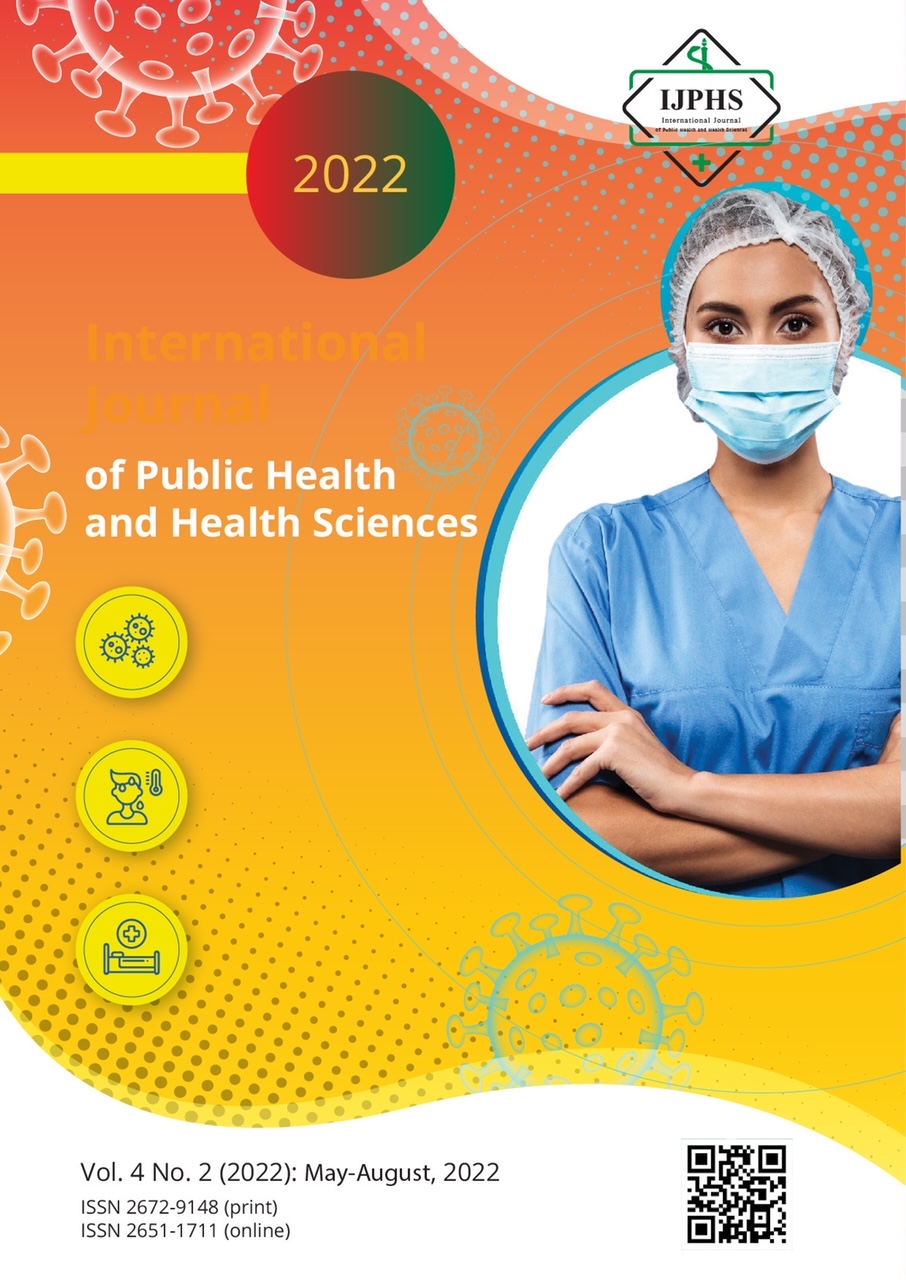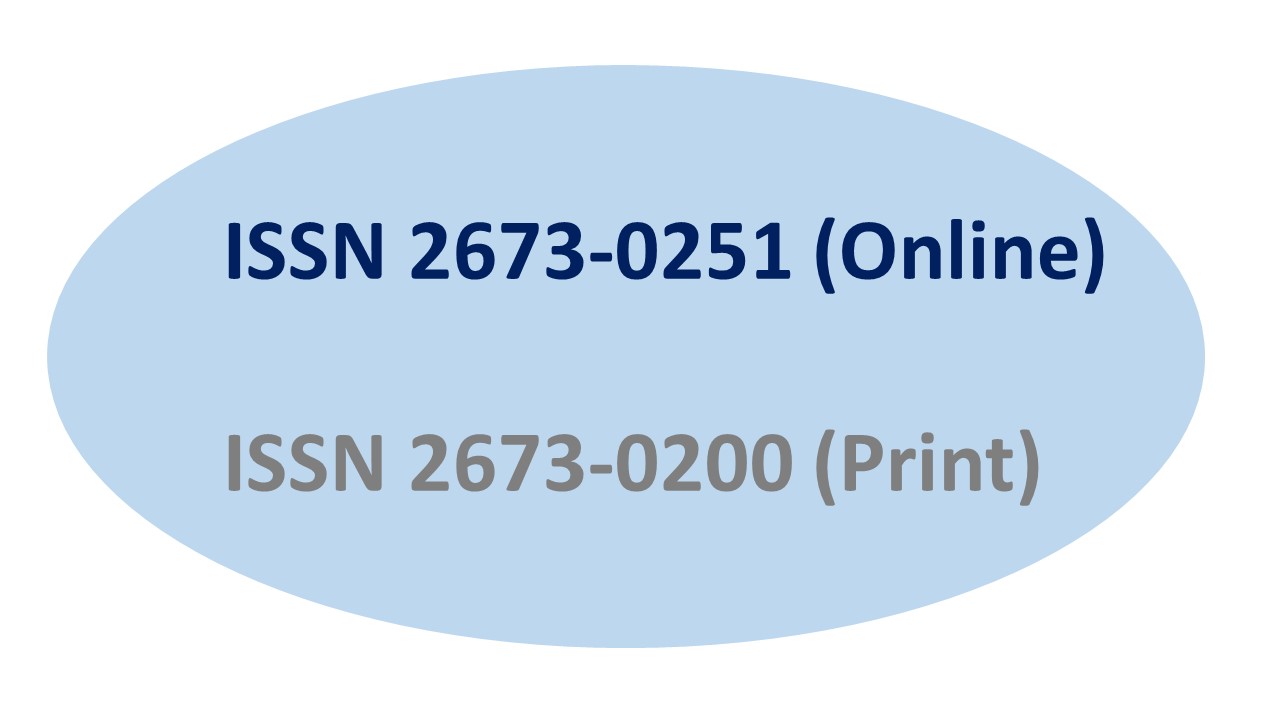The Medical Complications and Symptomatic Management of Post Covid Syndrome- A Review
Keywords:
COVID-19, Post covid complications, Rehabilitation program, Neuropsychiatric systems, Medical complicationsAbstract
COVID-19 (multi-organ disease with a wide range of symptoms) is an ongoing pandemic, which are now extending to its long-term sequelea. The majority of patients make a recovery within 3–4 weeks of diminishing COVID-19, but a small percentage of patients continue to suffer from its persisting effects and develop sustained illness/medical problems, which can lead to long-term health issues. Fatigue, dyspnea, cough, headache, brain fog, anosmia, and dysgeusia are frequent symptoms of post-COVID-19 complications (PCS), although damage to the pulmonary, cardiovascular, cutaneous, musculoskeletal, and neuropsychiatric systems have also been observed. Patients with COVID-19 should be followed up for a long time after they have recovered, and a complete rehabilitation program can be established for them. Current scenario demands further epidemiological and clinical studies to establish the metaphors of PCS and its management. The present review aims to highlight the post COVID manifestations and management strategies as there is very limited evidence about the management of COVID-19 after the first three weeks of illness.
References
Iqbal, F.M., Lam, K., Sounderajah, V., Clarke, J.M., Ashrafian, H., Darzi, A. (2021). Characteristics and predictors of acute and chronic post-COVID syndrome: A systematic review and meta-analysis. EClinicalMedicine, 36:100899.
Salamanna, F., Veronesi, F., Martini. L, Landini, M.P., Fini, M. (2021). Post-COVID-19 Syndrome: The Persistent Symptoms at the Post-viral Stage of the Disease. A Systematic Review of the Current Data. Front.Med. (Lausanne), 8:653516.
Mao, R., Qiu, Y., He, J.S., et al. (2020). Manifestations and prognosis of gastrointestinal and liver involvement in patients with COVID-19: a systematic review and meta-analysis. Lancet Gastroenterol Hepatol, 5(7):667-678.
Levi, M., Thachil, J., Iba, T., Levy, J.H. (2020). Coagulation abnormalities and thrombosis in patients with COVID-19. Haematol, 7(6):e438-e440.
Long, B., Brady, W.J., Koyfman, A., Gottlieb, M. (2020). Cardiovascular complications in COVID-19. Am J Emerg Med, 38(7):1504-1507.
Mao, L., Jin, H., Wang, M., et al. (2020). Neurologic Manifestations of Hospitalized Patients With Coronavirus Disease 2019 in Wuhan, China. Neurol, 77(6):683-690.
Middeldorp, S., Coppens, M., Van Haaps, T.F., et al. (2020). Incidence of venous thromboembolism in hospitalized patients with COVID-19. J Thromb Haemost, 18(8):1995-2002.
Chen, Y.T., Shao, S.C., Hsu, C.K., Wu, I.W., Hung, M.J., Chen, Y.C. (2020) Incidence of acute kidney injury in COVID-19 infection: a systematic review and meta-analysis. Crit Care, 24(1):346.
Becker, R.C. (2021). COVID-19 and its sequelae: a platform for optimal patient care, discovery and training.. J Thromb Thrombolysis, 51(3):587-594.
Amenta, E.M., Spallone, A., Rodriguez-Barradas, M.C., El Sahly, H.M., Atmar, R.L., Kulkarni, P.A. (2020). Postacute COVID-19: An Overview and Approach to Classification. Open Forum Infect Dis, 7(12):509.
Fernández-de-Las-Peñas, C., Palacios-Ceña, D., Gómez-Mayordomo, V., Cuadrado, M.L., Florencio, L.L. (2021). Defining Post-COVID Symptoms (Post-Acute COVID, Long COVID, Persistent Post-COVID): An Integrative Classification. Int J Environ Res Public Health, 18(5):2621.
Trougakos, I.P., Stamatelopoulos, K., Terpos, E., et al. (2021). Insights to SARS-CoV-2 life cycle, pathophysiology, and rationalized treatments that target COVID-19 clinical complications. J Biomed Sci, 28(1):9.
Garcia-Oscos, F., Salgado, H., Hall, S., et al. (2012). The stress-induced cytokine interleukin-6 decreases the inhibition/excitation ratio in the rat temporal cortex via trans-signaling. Biol Psychiatry, 71(7):574-82.
Ritchie, K., Chan, D., Watermeyer, T. (2020). The cognitive consequences of the COVID-19 epidemic: collateral damage?. Brain Commun, 2(2):069.
Wostyn, P. (2021). COVID-19 and chronic fatigue syndrome: Is the worst yet to come?. Med Hypotheses, 146:110469.
Nalbandian, A., Sehgal, K., Gupta, A., et al. (2020). Post-acute COVID-19 Syndrome. Nat. Med, 27:601-15.
Huang, Y., Tan, C., Wu, J., et al. (2020). Impact of coronavirus disease 2019 on pulmonary function in early convalescence phase. Respir Res, 21(1):163.
Lerum, T.V., Aaløkken, T.M., Bronstad, E., et al. (2021). Dyspnoea, lung function and CT findings 3 months after hospital admission for COVID-19. Eur Respir J, 57(4):2003448.
Puntmann, V.O., Carerj, M.L., Wieters, I., et al. (2020). Outcomes of Cardiovascular Magnetic Resonance Imaging in Patients Recently Recovered From Coronavirus Disease 2019 (COVID-19). JAMA Cardiol, 5(11):1265-73.
Rajpal, S., Tong, M.S., Borchers, J., et al. (2020). Cardiovascular Magnetic Resonance Findings in Competitive Athletes Recovering From COVID-19 Infection. JAMA Cardiol, 6(1):116-8.
Otte, M.S., Klussmann, J.P., Luers, J.C. (2020). Persisting olfactory dysfunction in patients after recovering from COVID-19. J Infect, 81(3):58.
Hays, P. (2020). Clinical sequelae of the novel coronavirus: does COVID-19 infection predispose patients to cancer?. Future Oncol, 16(20):1463-74.
Oronsky, B., Larson, C., Hammond, R.C., Oronsky, A., Kesari, S., Lybeck, M. (2021). A Review of persistent post COVID syndrome (PPCS). Clin. Rev Allergy Immunol, 20;1-9.
Bai, C. (2020). Updated guidance on the management of COVID-19: from an American Thoracic Society/European Respiratory Society coordinated International Task Force. Eur Respir Rev, 29:200287.
Shah, W., Hillman, T., Playford, E.D., Hishmeh, L. (2021). Managing the long term effects of COVID-19: summary of NICE, SIGN, and RCGP rapid guideline. Brit. Med. J, 372:136.
Luks, A.M., Swenson, E.R. (2020). Pulse oximetry for monitoring patients with COVID-19 at home. Potential pitfalls and practical guidance. Ann. Am. Thorac. Soc, 17:1040–46.
Brigham, E. (2021). The Johns Hopkins Post-Acute COVID-19 Team (PACT): a multidisciplinary, collaborative, ambulatory framework supporting COVID-19 survivors. Am. J. Med, 12:9.
Myall, K.J. (2021). Persistent post-COVID-19 inflammatory interstitial lung disease: an observational study of corticosteroid treatment. Ann Am Thorac Soc, 18(5): 799–806.
Huang, C. (2021). 6-month consequences of COVID-19 in patients discharged from hospital: a cohort study. Lancet, 397:220–32.
Chang, Y. (2018). Lung transplantation as a therapeutic option in acute respiratory distress syndrome. Transplantation, 102:829–837.
Bharat, A. (2020). Lung transplantation for patients with severe COVID-19. Sci Transl Med, 12:4282.
Chen, J. (2020). Lung transplantation for an ARDS patient post-COVID-19 infection. Chest, 157:453.
George, P.M., Wells, A.U., Jenkins, R.G. (2020). Pulmonary fibrosis and COVID-19: the potential role for antifibrotic therapy. Lancet Respir Med, 8:807–15.
Bikdeli, B. (2020). COVID-19 and thrombotic or thromboembolic disease: implications for prevention, antithrombotic therapy, and follow-up: JACC state-of-the-art review. J Am Coll Cardiol, 75:2950–73.
Barnes, G.D. (2020). Thromboembolism and anticoagulant therapy during the COVID-19 pandemic: interim clinical guidance from the anticoagulation forum. J Thromb Thrombolysis, 50:72–81.
Moores, L.K. (2020). Prevention, diagnosis, and treatment of VTE in patients with coronavirus disease 2019: CHEST Guideline and Expert Panel report. Chest, 158:1143–63.
Bikdeli, B. (2020). Pharmacological agents targeting thromboinflammation in COVID-19: review and implications for future research. Thromb Haemost, 120:1004–24.
Desai, A.D., Boursiquot, B.C., Melki, L., Wan, E.Y. (2020). Management of arrhythmias associated with COVID-19. Curr. Cardiol. Rep, 23:2.
Bozkurt, B., Kovacs, R., Harrington, B. (2020). Joint HFSA/ACC/AHA statement addresses concerns re: using RAAS antagonists in COVID-19. J Card Fail, 26:370.
Lopes, R.D., Macedo, S.V., Pedro, G.M., et al. (2021). Effect of discontinuing vs continuing angiotensin-converting enzyme inhibitors and angiotensin II receptor blockers on days alive and out of the hospital in patients admitted with COVID-19: a randomized clinical trial. J Am Med Assoc, 325:254–64.
Vaduganathan, M., Vardeny, O., Micheal, T., McMurray, J.V., Pfeffer, A.M., Solomon, S.D. (2020). Renin–angiotensin–aldosterone system inhibitors in patients with COVID-19. N Engl J Med, 382:1653–59.
Guzik, T.J., Mohiddin, A.S., Dimarco, A., et al. (2020). COVID-19 and the cardiovascular system: implications for risk assessment, diagnosis, and treatment options. Cardiovasc Res, 116:1666–87.
Do, T.P., Remmers, A., Schytz, H.W., et al. (2019). Red and orange flags for secondary headaches in clinical practice: SNNOOP10 list. Neurology, 92:134–44.
Kaseda, E.T, Levine, A.J. (2020). Post-traumatic stress disorder: a differential diagnostic consideration for COVID-19 survivors. Clin Neuropsychol, 34:1498–1514.
Meier, P., Bonfils, R.M., Vogt, B., Burnand, B., Burnier, M. (2011). Referral patterns and outcomes in noncritically ill patients with hospital-acquired acute kidney injury. Clin. J. Am. Soc. Nephrol, 6:2215–25.
Ruggeri, R.M., Campenni, A., Siracusa, M., Frazzetto, G., Gullo, D. (2020). Subacute thyroiditis in a patient infected with SARS-COV-2: an endocrine complication linked to the COVID-19 pandemic. Hormones (Athens), 20:219–21.
Donati Zeppa, S., Agostini, D., Piccoli, G., Stocchi, V., Sestili, P. (2020). Gut microbiota status in COVID-19: an unrecognized player? Front Cell Infect Microbiol, 10:576551.
Bradley, K.C., Finsterbustch, K., Schnepf, D., Crota, S., Liorian. M., Davidson, S., et al. (2021). Microbiota-driven tonic interferon signals in lung stromal cells protect from influenza virus infection. Cell Rep, 28:245–56.
Miquel, S., Martin, R., Rossi, O., Bermudez-Humaran, L.G., Chatel, J.M., Sokol. H., et al. (2020). Faecalibacterium prausnitzii and human intestinal health. Curr Opin Microbiol, 16:255–61.
Garrigues, E., Janvier, P., Kherabi, Y., et al. (2020). Post-discharge persistent symptoms and health-related quality of life after hospitalization for COVID-19. J Infect, 81:4–6.
Downloads
Published
Issue
Section
License
Copyright (c) 2022 International Journal of Public Health and Health Sciences

This work is licensed under a Creative Commons Attribution-NonCommercial-NoDerivatives 4.0 International License.
If the manuscript is accepted for publication, copyright of the article shall be assigned to the IJPHS. After acceptance of a manuscript, the authors will be requested to complete a copyright transfer agreement form







